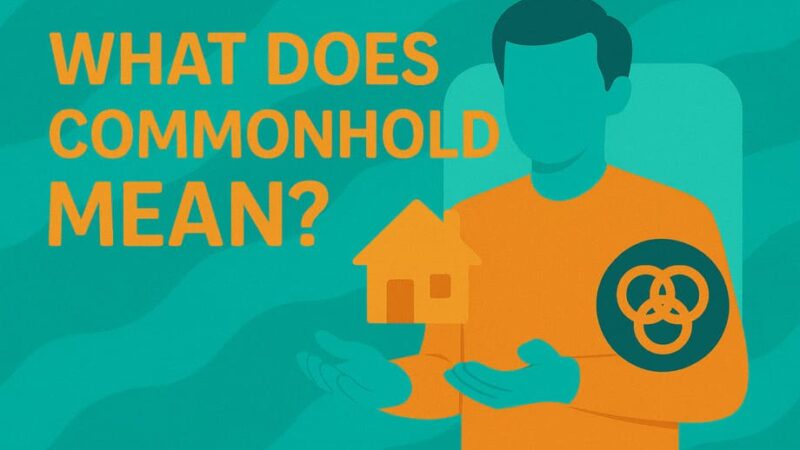First Time Home Buyer with a Partner – A Complete Guide for UK Couples

Buying your first home is a major milestone and doing it with a partner can make the experience even more rewarding (and sometimes, a little more complicated). Whether you’re newlyweds, long-time renters, or just ready to make that leap together, becoming a first-time home buyer with a partner in the UK involves some smart planning, open communication, and legal know-how.
This guide walks you through everything you need to know: from joint mortgages and deposit strategies to the pros and cons of buying as a couple and tips to avoid common pitfalls.
Table of Contents
Why Buying a Home with a Partner Is Different
Purchasing a home with someone else comes with shared financial responsibility, joint decisions, and long-term planning. Unlike buying solo, you need to align on:
- Your financial readiness
- Credit scores and affordability
- Legal ownership structure
- Future life plans (career, family, etc.)
It’s exciting — but it also demands clear conversations and strategic choices.
How Does Buying a Home Together Work in the UK?
If you’re buying a property with a partner for the first time, you’ll typically apply for a joint mortgage. This means both of your incomes and credit histories are considered to determine how much you can borrow.
You’ll also need to decide how you want to own the property:
- Joint Tenants: You own the whole property together equally (ideal for married couples or long-term partners).
- Tenants in Common: You each own a defined share (e.g., 60/40), which can be passed to different people in your will (great for those contributing unequal deposits or wanting legal clarity).
It’s crucial to get legal advice, especially if you’re not married or are contributing different amounts.
7 Essential Tips for First-Time Buyers with a Partner
1. Have a Transparent Money Talk Early On
Discuss income, debts, savings, credit scores, and spending habits. Align your expectations, including how much you can afford, what lifestyle you’re aiming for, and any financial red flags.
2. Check Your Credit Scores
Lenders will assess both of your credit histories. A low score from one partner could affect your ability to get a good mortgage deal. Use free credit check tools and take steps to improve your scores if needed.
3. Work Out How Much You Can Afford Together
Use a joint mortgage affordability calculator to see how much you can borrow based on your combined income and expenses. Don’t forget to factor in stamp duty, solicitor fees, and moving costs.
4. Use a Lifetime ISA to Boost Your Deposit
If you’re both eligible, open Lifetime ISAs (LISAs) and each save up to £4,000 a year. The government adds a 25% bonus — that’s up to £1,000 per person annually — and you can use it for your first home.
5. Agree on Ownership Shares
If you’re contributing different amounts to the deposit or expect unequal mortgage repayments, it’s wise to draft a Declaration of Trust. This legal document outlines each person’s share of ownership and what happens if one of you wants to sell.
6. Apply for First-Time Buyer Schemes Together
You may qualify for help like:
- First Homes scheme (discounted homes for first-time buyers)
- Mortgage Guarantee Scheme (5% deposit mortgages)
- Shared Ownership
Check the eligibility requirements — both buyers usually need to be first-timers.
7. Plan for ‘What If’ Scenarios
Nobody wants to think about breakups or life changes — but planning for them protects you both. Consider:
- What happens if one person wants to sell?
- Will you both contribute equally to repairs and bills?
- What if one of you is unable to pay their share?
Put clear agreements in writing with legal support.
Pros and Cons of Buying a Home with a Partner
Pros
- Bigger Combined Budget
Two incomes typically mean you can borrow more and afford a better property. - Shared Costs
Deposits, legal fees, and bills are easier to manage when split between two people. - Faster Deposit Saving
Pooling your savings gets you on the property ladder more quickly. - Emotional Support
Navigating the home-buying process with a partner can make it less stressful.
Cons
- Credit Risk Ties
Your partner’s credit issues can affect your mortgage deal. - Legal Complexities
Unmarried couples need clear legal arrangements to protect their interests. - Disagreements
Conflicts over budget, property type, or future plans can cause tension. - Breakup Risks
If the relationship ends, selling or buying out the other person can be complicated.
First-Time Buyer Schemes Available for Couples in the UK
1. First Homes Scheme
- Discounted new-build homes (30–50% off market price)
- Both applicants must be first-time buyers with combined income under £80,000 (£90,000 in London)
2. Lifetime ISA
- Both partners can open their own LISAs
- Government adds 25% bonus on savings
- Can be used together to buy a home worth up to £450,000
3. Shared Ownership
- Buy a share of a property (25–75%) and pay rent on the rest
- Ideal for couples with smaller deposits
4. Mortgage Guarantee Scheme
- Available for properties up to £600,000
- Allows 5% deposits
- Great option if you’re struggling to save more
Legal Documents You May Need
When buying with a partner, especially if you’re not married, consider these legal safeguards:
- Declaration of Trust: Outlines each party’s contributions and share
- Cohabitation Agreement: Sets expectations for shared living, bills, and what happens if you split
- Will: Ensures your share of the property goes to your chosen beneficiary
It’s worth consulting a solicitor with experience in joint property purchases.
Common Mistakes to Avoid
- Assuming everything will work itself out
- Not getting a legal agreement in place
- Ignoring credit or debt issues
- Choosing a mortgage based on the highest offer instead of what’s affordable
- Failing to account for future plans (children, career moves, etc.)
Buying a home with a partner is a team effort. Open communication and smart planning go a long way.
Final Thoughts
Becoming a first-time home buyer with a partner is an exciting and achievable goal but it takes teamwork, financial planning, and a solid understanding of the legal aspects involved.
Start by aligning on your goals, saving smartly, and exploring all available schemes and protections. With clear communication and a bit of professional support, buying your first home together can be the perfect step forward in your life as a couple.
Last Updated on July 3, 2025 by James Cartwright







